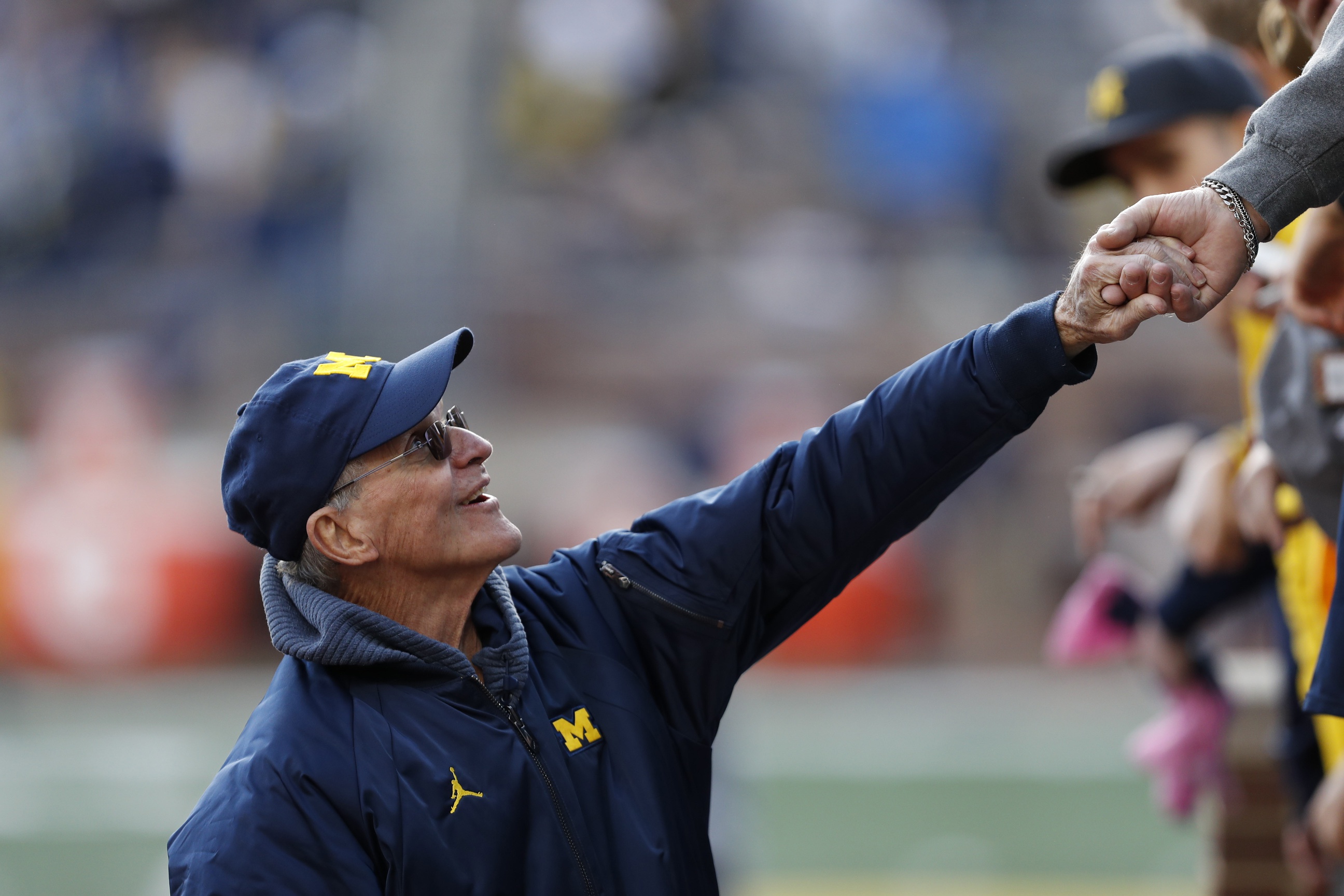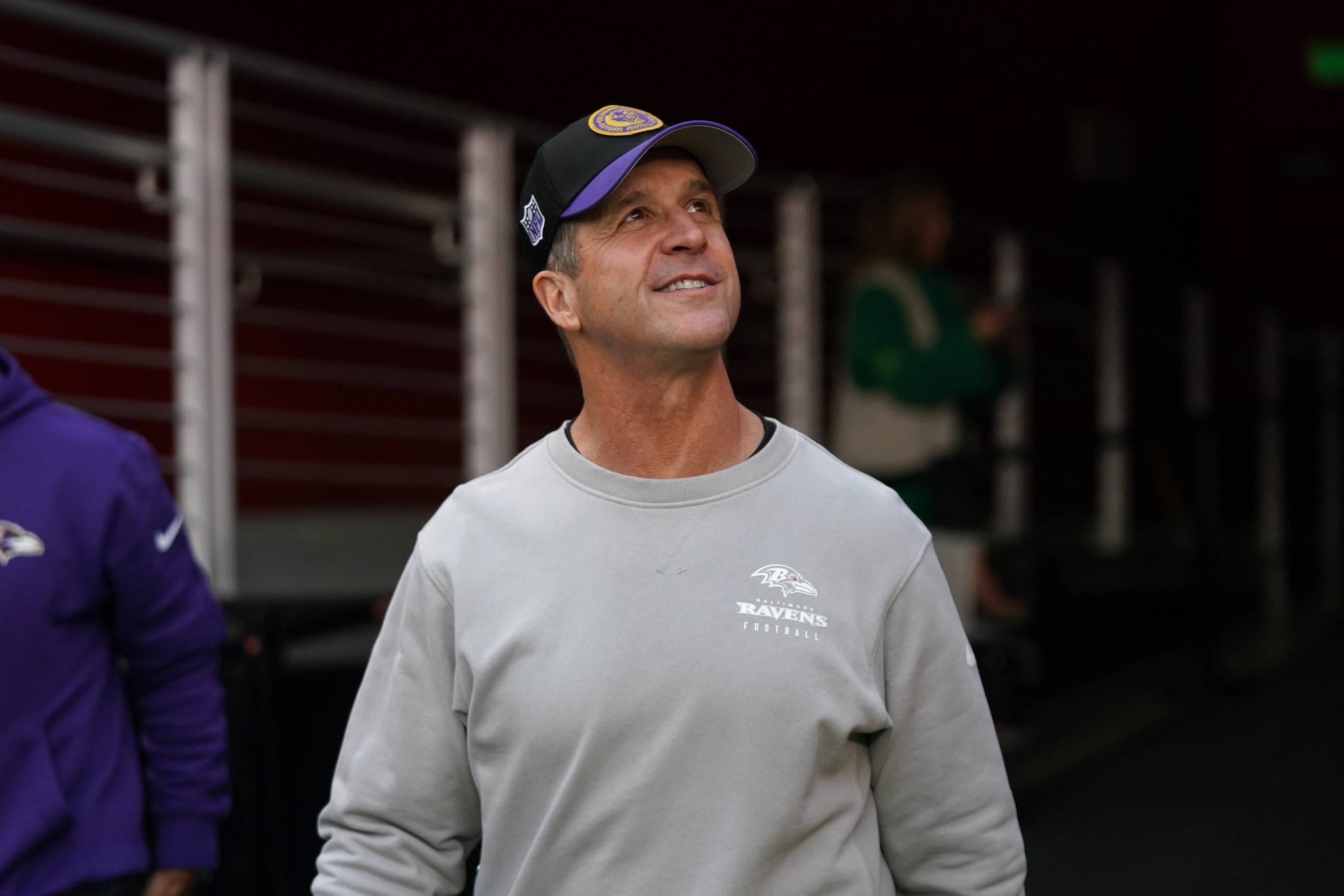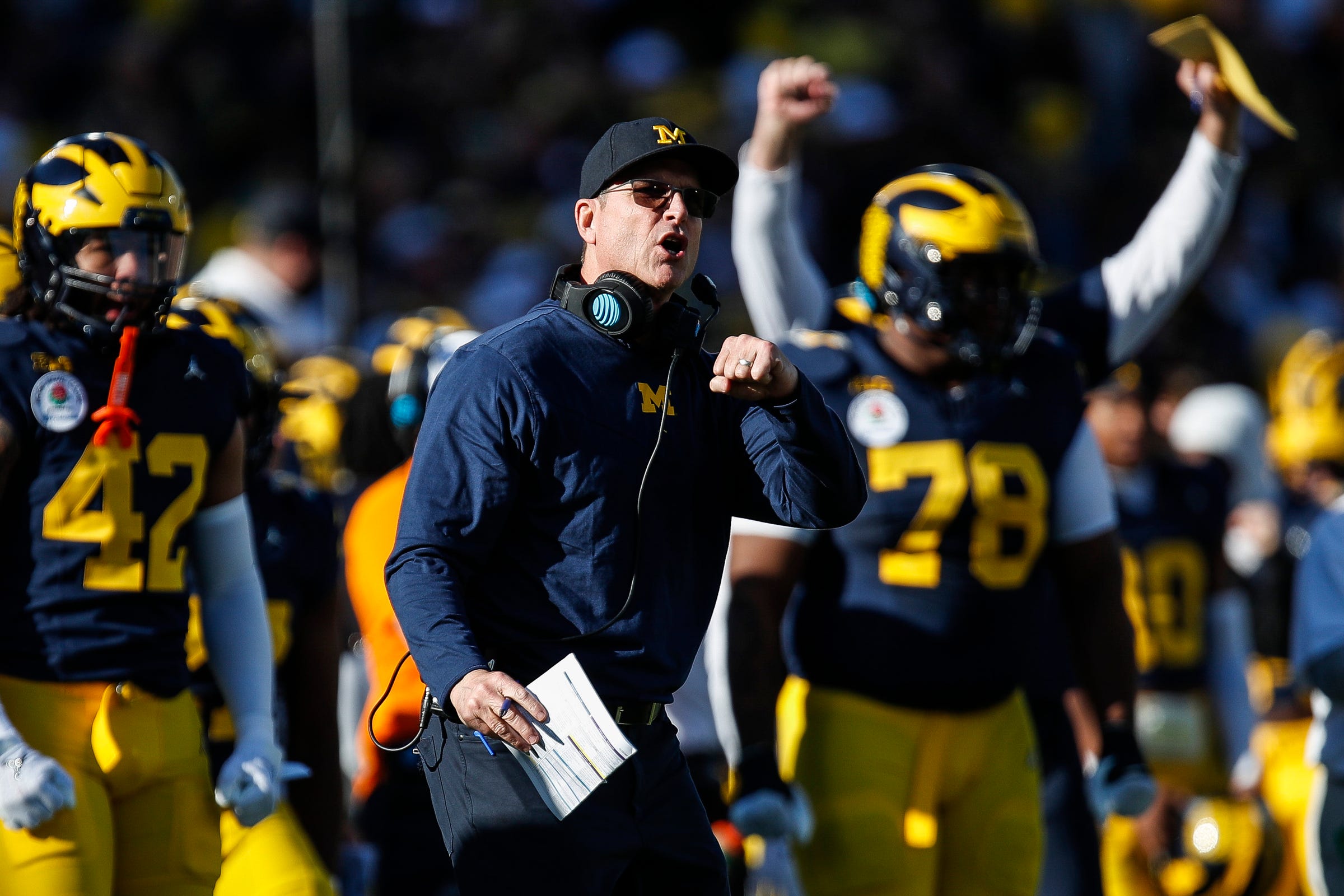Jack Harbaugh Knows His Famous Sons Like No One Else Does


Jack Harbaugh arrived at breakfast Thursday morning dressed like any other Ann Arbor, Mich., dad supporting his kids’ teams. He wore a jacket bearing the logo of John’s Baltimore Ravens, who are favored to represent the AFC in the Super Bowl, and a hat representing Jim’s Michigan Wolverines, who are favored to win the College Football Playoff national championship.
If this seems wild to you, imagine how it seems to Jack. In 2002 he retired from coaching at age 63, after leading the Western Kentucky Hilltoppers to the Division I-AA national championship. At the time, John was the Philadelphia Eagles’ special teams coordinator. Jim was coaching the Oakland Raiders’ quarterbacks. They have given Jack an incredible retirement gift: two trips to the Super Bowl (unfortunately, they faced each other), 14 NFL playoff berths, three Big Ten championships—and most of all, they gave him the feeling he thought he had to give up.
“I probably should have stayed in it a little longer,” Jack says. “But the fact that they’ve allowed me to be around the team, engage with the players and the coaches—it’s filled that void a little bit.”
This is also wild: John and Jim were born 15 months apart, chose the same profession, have had the same job title (head coach) for each of the last 16 years, and swap ideas and even assistant coaches on a regular basis, yet when people talk about them, what is the first thing they say?
They’re so different.
This is, of course, because Jim seems different from pretty much everyone on the planet. He is often described as quirky, which Jack can’t stand, because it reduces his middle child to a cartoon character: “You’re being yourself, right? Let’s just judge the person and the entirety of who they are, and not on any one little thing.”
Believe Jack when he says of his sons: “They’re so much alike. So much alike.” John and Jim have said the same. The differences that are large to others are small to them, and they know each other far better than the rest of us know them. The Harbaughs are understandably wary of anybody using one to denigrate the other.
Fair enough. But as John tries to win his second Super Bowl and Jim tries to win his first national championship, they are proving that every great football coach must do things a certain way:
His own.

John Harbaugh talks to his parents once or twice a week. He often calls Thursday evenings when he leaves the Ravens’ facility, at which point Jack knows: He and his wife, Jackie, have 17 minutes. That’s how long John’s commute is. Then he pulls into his driveway and gets off the phone.
“It’s so routine that for him, it’s not a plan,” Jack says. “In his mind, it’s just a process.”
And Jim?
“Jim calls and he’ll give you, ‘Hello, how are you doing, how’s Mom doing, da da da,’” Jack says. “And then he goes right to what he’s calling for.”
It’s not that Jim has his hand out. He just leans on his parents, who live next door to him, for counsel more than John these days. Jack says it is only because of “proximity,” and anyway, what matters to a dad is his sons call him.
John solves problems because that is part of coaching a football team. Jim coaches a football team so he can turn problems over in his head a thousand times until he likes which side is up.
John changes as needed, and masterfully so. You would be hard-pressed to find any coach in NFL history who won big with quarterbacks as different as Joe Flacco and Lamar Jackson. John’s Ravens have been a model for how to win with old-school defense and toughness, but he was also one of the first already-successful head coaches to embrace analytics-driven fourth-down decisions—without being a prisoner to analytics. In 16 seasons, John has had seven offensive coordinators, five defensive coordinators and two losing records.
Jim needs to change. Not jobs or cities, as people commonly assume; he needs to change something every day. Football coaches, as a rule, are drawn to the order that the sport provides. Order brings predictability, predictability is soothing, and this, to a typical football coach, is heresy:
“What Jim will do every once in a while … ‘we’re practicing at 3:20. Be out here ready to go,’” Jack says. “And then about maybe an hour or so before, a half day before, he'll go, ‘Let’s not do that.’”
There are coaches who have worked for Jim who would laugh at the idea this happens “once in a while.” Everything in Jim’s program is subject to change at any time—in part because Jim wants people on edge, and also because he does not believe any task is beneath him. He goes where his mind takes him, and if that means spending 45 minutes on something a low-level assistant was planning to do, then that’s what he does.

John is 61 now. Jim is 60. They are nearing the age their father was when he retired. Neither man seems close to retirement, but one can at least imagine what John would be like if he stopped coaching. He would, for example, be fantastic on TV. It is harder to envision Jim without a team to coach; Jack says, perhaps half-jokingly, “I don’t know what he would do. There’s only so much lawn you can cut or chickens you can feed.”
Jack tries to keep his football opinions to himself until one of his sons asks, “Whaddya think?” Then he sees an opening and dives in. But he says they really don’t ask that often.
In the meantime, Jim builds competition into every level of his program, steeling everybody for whatever hits them on Saturday.
John builds competition into every level of his program, steeling everybody for whatever hits them on Sunday.
And when Jack and Jackie Harbaugh aren’t in the stadium, they watch the games from home. Jack says Jackie gets too excited and stands in front of the TV, so they have to watch on separate screens. You might see a husband and wife watching the same game in different rooms. The Harbaughs see a mom and dad in their 63rd year of marriage, cheering on their famous sons.
